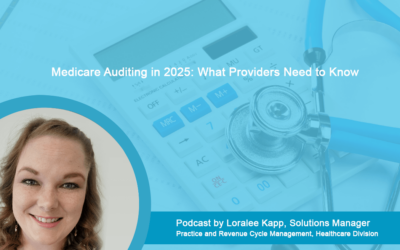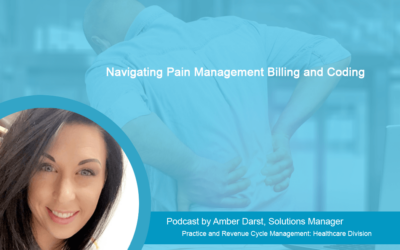Based in U.S., Outsource Strategies International (OSI) is one of the leading medical billing and coding companies, providing reliable services for diverse healthcare specialties including Cardiology, Dentistry, Chiropractic, Pain Management, Neurology and Orthopedics.
In today’s podcast, Meghann Drella, one of our Senior Solutions Managers discusses key ways to improve HEDIS reporting efficiency.
In this episode
00:19 What is HEDIS?
A system maintained by the National Committee for Quality Assurance (NCQA), HEDIS or the Healthcare Effectiveness Data and Information Set evaluates the ability of health plans and providers to deliver high-quality care to patients.
00:47 HEDIS quality measures
More that 90 HEDIS quality measures are grouped into six essential dimensions of care and services including effectiveness of care and access/availability of care.
02:30 Improving efficiency of HEDIS reporting
Some ways for health plans to work with providers to improve efficiency of HEDIS reporting include implementing an efficient electronic health record (EHR) system and ensuring proper documentation.
Read Transcript
Hello and welcome to our podcast series. My name is Meghann Drella and I’m a Senior Solutions Manager here at Outsource Strategies International (OSI). Today I’ll be discussing ways to improve HEDIS reporting efficiency.
With the rise of value-based models of care, providers and health plans need to ensure efficient HEDIS reporting for financial success. The Healthcare Effectiveness Data and Information Set (HEDIS) is a system maintained by the National Committee for Quality Assurance (NCQA) for evaluating the ability of health plans and providers to deliver high-quality care to patients. HEDIS is used by more than 90 percent of America’s health plans to assess performance on important dimensions of care and service. HEDIS medical record reviews reflect the health care services that plans’ members receive that may have not been captured in claims data.
There are more that 90 HEDIS quality measures grouped into six essential dimensions of care and services. These six are –
- Effectiveness of care
- Access/availability of care
- Experience of care
- Utilization and relative resource use
- Health plan descriptive information and
- Measures collected using electronic clinical data systems
HEDIS also covers preventive care measures such as breast cancer and colorectal cancer screening, and childhood and adolescent vaccinations. HEDIS also includes medical measures associated with different body systems or disease conditions like asthma, diabetes and heart disease, and relate to key health issues like smoking, cancer, opioid use and pharmacotherapy, as well as use of high risk medications in the elderly. Health plans can monitor compliance for regular follow-ups after hospitalizations and during transitions of care.
Providers should be knowledgeable about HEDIS technical specification changes. NCQA revises its list of HEDIS measures every year, adding new measures and removing those that are no longer relevant. The important new measures for the measurement year 2019 and reporting year 2020 are:
- Follow-Up After High-intensity Care for Substance Use Disorder (FUI)
- Pharmacotherapy for Opioid Use Disorder (POD)
- Postpartum Depression Screening and Follow-Up (PDS) and
- Prenatal Depression Screening and Follow-Up (PND)
In addition, there are supplemental data requirement changes, global changes, retired and partial retired measures, and significantly revised measures. Addressing and interpreting these technical specifications and implementing timely and effective action plans to address them is crucial to ensure high performance with HEDIS.
Here are some ways health plans can work with providers to improve efficiency of HEDIS reporting:
- Implement an efficient electronic health record (EHR) system: EHRs capture patient information in digital format. A well-designed EHR system will ensure that forms are prefilled accurately with key patient data for HEDIS measures. This will speed up data capture and eliminate redundancies in HEDIS data reporting. A Health Payer Intelligence article points out that EHR technology can also help reduce non-compliance risks. For instance, EHR alerts can be set up to notify health plans that required HEDIS services have been performed. This will ensure that documentation provides claim data that validates utilization of services or referrals, including exclusion criteria for specific measures.
- Ensure quality documentation: Proper documentation that tells the patient’s story is a key component when it comes to HEDIS scores. Health plans can work with providers to help them improve EHR documentation. This is important not only for accurate billing, but also to provide quality healthcare. To ensure good medical records, health plans providers should include:
-
- Accurate and complete documentation
- Current medication lists
- Detailed documentation of all active chronic conditions
- Documentation of evaluations and findings during every visit
- Provider’s signature with full name and credentials and
- Manual review of the EHR specific to each HEDIS measure including laboratory results, problem list, specialist consultations, and chart notes.
The Centers for Medicare and Medicaid (CMS) have made HEDIS a major factor in provider and health plan performance. With the increasing emphasis on value-based models of care, efficient HEDIS reporting is essential for financial success.
I hope this helps, and remember that documentation as well as a thorough knowledge of payer regulations and guidelines is critical to ensure accurate reimbursement for the procedures performed.
Thank you for joining me and stay tuned for my next podcast!



